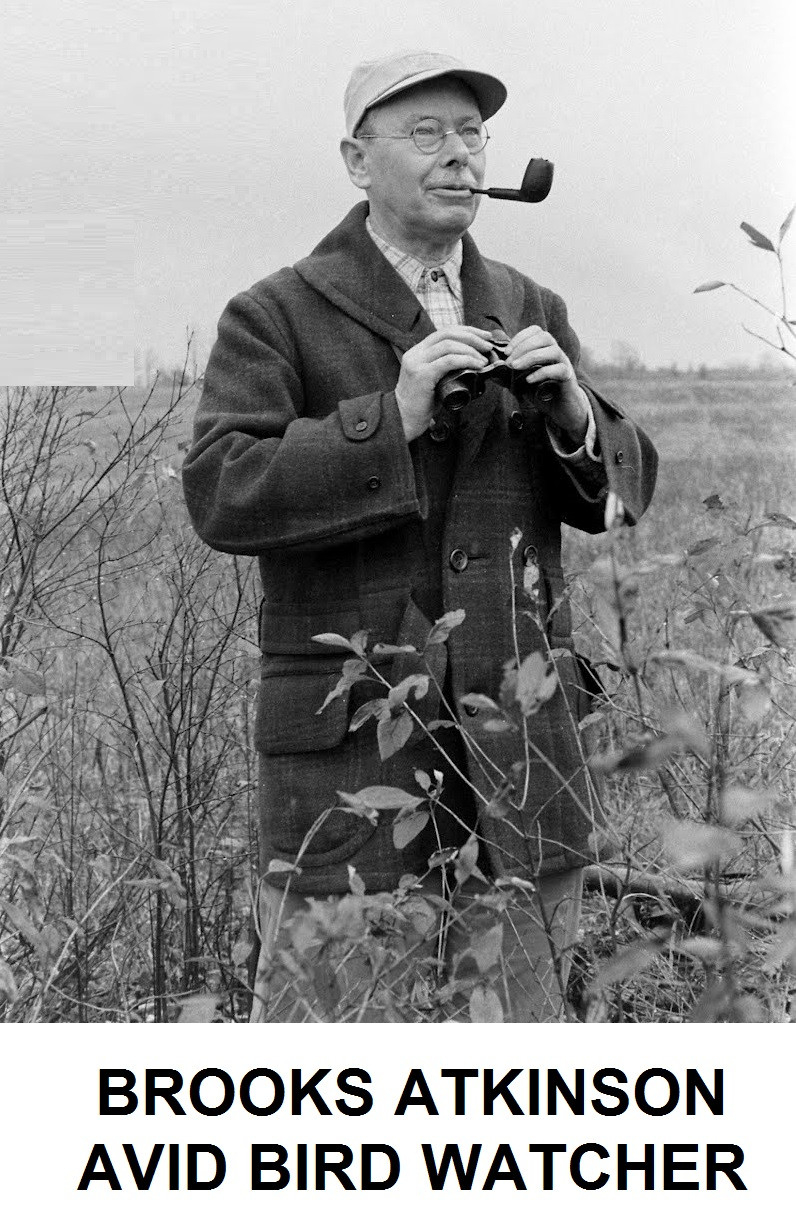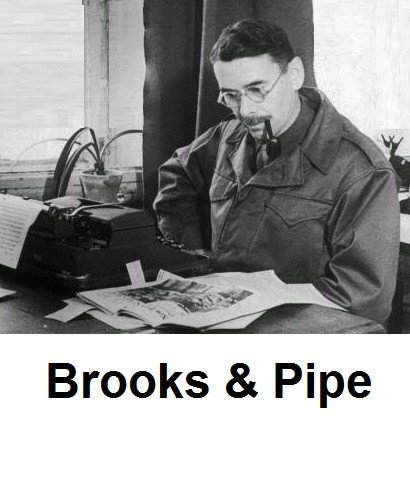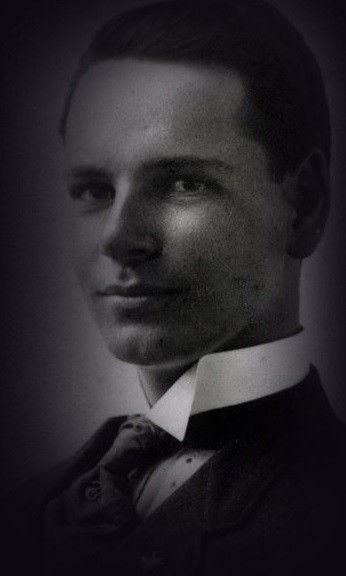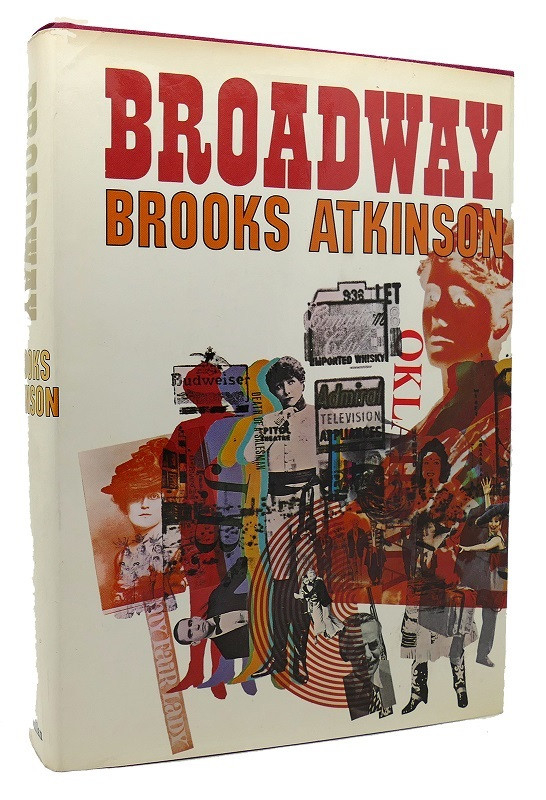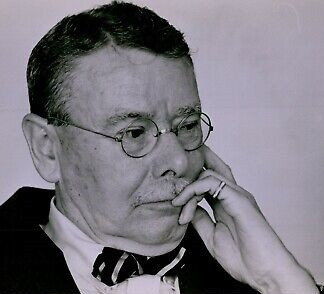Brooks Atkinson, the drama critic of The New York Times for 31 years, and the winner of the Pulitzer Prize for foreign correspondence in 1947, died of pneumonia yesterday at Crestwood Hospital in Huntsville, Ala. He was 89 years old.
Mr. Atkinson, who had been seriously ill since November, entered the hospital on Dec. 7. He had moved to Huntsville in 1981 from his farm in Durham, N.Y., to be near his family.
Few men valued power less than he did. Yet his skill as an essayist, the scope of his erudition and the integrity of his standards made him, by common consent, the theater's most influential reviewer of his time.
He had the opening-night seat as drama critic of The New York Times from 1925 to 1960, except for a four-year break in the 1940's, when, as a foreign correspondent, he won the Pulitzer.
Mr. Atkinson's period as critic coincided with the rise of a new, serious era of American theater, including dramas by Eugene O'Neill, Sean O'Casey, Elmer Rice, Arthur Miller, Tennessee Williams, William Saroyan, S. N. Berman, Edward Albee and innovative musicals from Rodgers and Hart to Rodgers and Hammerstein. His reviews and observations helped raise public awareness and the levels of drama criticism.
He was also credited with blazing new critical trails to Off Broadway theater when it was yet an unrecognized medium performing in basements and storefronts.
The theater loved Mr. Atkinson while he was a critic, and perhaps even more after he retired and its practitioners were no longer wary of the next critical shoe he might drop. A Broadway theater was named for him in 1960. He loved theater, but that was not a first love. ''The newspaper business is my real enthusiasm,'' he said in an interview in 1979. ''The theater is secondary to the newspaper business.''
Mr. Atkinson exemplified the spirit of the Renaissance man with a mind that constantly inquired and fingers that always wrote.
He joined The Times in 1922 as editor of The Book Review. During World War II he felt deeply that the great drama of the world was being enacted elsewhere than on Broadway and applied for reassignment. He spent two years reporting from China. In 1945, he was sent to Moscow and after his return wrote a series of articles that won him the Pulitzer Prize. On Sept. 1, 1946, he once again became drama critic.
In 1960, when he permanently relinquished the critic's seat, Mr. Atkinson started a column called ''Critic-at- Large'' that appeared in The Times for five years and contained essays on whatever captured his interest.
In his customary easygoing, literate style, he found himself caught up with problems of environment and pollution and other aspects of nature. He wrote of the sea he so loved, of birds, of politics and sports, of people. His last regular byline appeared on the column of April 30, 1965, when he retired.
In addition to his newspaper articles, Mr. Atkinson wrote almost a dozen books on theater, travel and nature.
While he was drama critic, the public, in survey after survey, overwhelmingly indicated that he was its mentor. He frequently scoffed at the notion that he could make or break a play. But there never was any doubt that he had potent influence over success or failure on the stage. 'Presided Over Broadway'
''There cannot have been another critic as trusted as Brooks Atkinson was by so large a proportion of the theater-going public,'' Arthur Miller said.
''He is the only one who can be said to have presided over Broadway,'' Mr. Miller added. ''For most people, it was probably less his analytical insights that mattered than his common sense and the air of total candor that his reviews carried with them. He followed no bandwagon, viewed each production pragmatically for what it tried to accomplish rather than what he would have preferred it to attempt, and was not at all afraid to be moved.''
''Above all, he made the reader see what he had seen and thus left some room for dissent,'' Mr. Miller said. ''His presence lent the theater a dignity and importance it did not usually merit, but his influence served to raise the sights of everyone it touched.'' 'Conscience of the Theater'
Describing Mr. Atkinson's work at The Times, Arthur Gelb, the newspaper's deputy managing editor who was associated with Mr. Atkinson for many years in the drama department, said:
''Brooks Atkinson began reviewing shortly after Eugene O'Neill appeared as a theater force in 1920, startling Broadway audiences with the first native American tragedy. Before O'Neill, most American plays were frothy entertainment. Atkinson was among O'Neill's earliest admirers, appreciative of his attempt to bring the American theater up to the standard of the ancient Greek theater of cathartic tragedy.''
''Atkinson was the conscience of the theater,'' Mr. Gelb continued. ''He rediscovered Off Broadway in the 50's when other critics did not want to bother going off the beaten path. His standards were tough, but his criticism was tempered by compassion.
''I can't ever recall his missing an opening night. Once he went to the theater and wrote his review in spite of a fever of 102. He was always among the earliest arrivals at a play, and he never left his seat during intermission, so as not to be drawn into gossip about the production. He had a compelling sense of courtesy toward the theater and an unfailing sense of optimism about its potential. He was the ideal theater critic for his time.'' Effect of His Reviews
So highly was Mr. Atkinson regarded in the theater that a favorable reaction from him could be balm for wounds inflicted by other critics, and, conversely, his frown could diminish praises lavished by colleagues.
The morning after the ringing reception accorded to Mary Martin in the musical ''South Pacific,'' Miss Martin was in tears because of the ever-so- slight reservation about her performance that he had expressed.
A major American playwright once confessed, ''I don't give a hoot what the others say as long as Brooks understands what I'm trying to do.''
For this faith and esteem Mr. Atkinson reciprocated with an untiring enthusiasm for his assignment and an unflagging zeal for the stage. Through the course of covering about 3,000 plays and musicals, he never became jaded. He said, ''There is no joy so great as that of reporting that a good play has come to town.'' Heralded Talented Newcomers
No ivory-tower critic, he refused to limit the boundaries of the theater to 42d and 59th Streets. Little bands of actors toiling in Manhattan basements and abandoned lofts were warmed by his attention and good will.
By reporting the renaissance of Off Broadway theater in the 1950's, he hastened the discovery by Broadway of such talented newcomers as the director Jose Quintero, the producer Joseph Papp and the performers Geraldine Page, George C. Scott, Colleen Dewhurst, Jason Robards, Fritz Weaver and Ben Gazzara.
''Our destinies and lives have been woven by him and we are here today because of what he meant to all of us,'' Mr. Quintero said when Mr. Atkinson retired as critic. ''Without his encouragement and criticism, there would not have been an Off Broadway theater.''
Mr. Atkinson's journalistic courage extended beyond the parameters of judgments of scripts and performance. During the period when Senator Joseph R. McCarthy's investigations of suspected Communists made the lawmaker's name the title of an era, Mr. Atkinson was one of the few important newspaper writers who dared attack the Senator's methods. These methods, he wrote, represented ''public intolerance'' and ''hysteria,'' although he recognized that there were indeed actual cases of ''spies and traitors that had come to light in those times.''
Mr. Atkinson was a man as gentle in manner as in character. He had the scholarly appearance of an erudite teacher at a university or at a reputable old prep school. Average in build, he had as his trademarks a mustache, a bow tie, a pipe that seemed always to be in his mouth, whether lit or not, and steel-rimmed spectacles.
His enthusiasms extended beyond the work at hand on the job. He was an ardent bird watcher, and he could also discourse on ocean tides and heavenly constellations. He loved city life but found surcease from bustle on his farm in upstate New York, to which he eventually retired. Printed Newspaper as a Boy
From his early years, he seemed destined for the position he later attained. Justin Brooks Atkinson was born in Melrose, Mass., on Nov. 28, 1894, the son of Jonathan H. and Narafella Atkinson. He attended Melrose High School, and in 1917 graduated from Harvard.
Almost from the time he had become aware of the printing press - as a boy, he had learned to set type and printed a little newspaper of local tidbits - he knew he wanted a career in journalism.
Upon graduation from college, he found a job as a district reporter with The Springfield Daily News. In 1919, he joined The Boston Evening Transcript, first as a police reporter, then as assistant to the drama critic, H. T. Parker.
In 1922 the young critic wrote to Carr Van Anda, then managing editor of The New York Times, asking for a job.
Mr. Van Anda invited him to come in, and when he did, they both went to see Adolph S. Ochs, the publisher. Mr. Ochs said the paper already had a drama critic and offered him the post of editor of The Book Review. Three years later, Mr. Atkinson succeeded Stark Young as drama critic.
After the bombing of Pearl Harbor in 1941, Mr. Atkinson grew restless with his aisle-side life and tried to enlist in the Navy, but he was rejected because of his age.
He asked The Times for a foreign assignment that would let him report on the war first-hand.
In 1942, the newspaper sent him to Chongqing, the provisional capital of China. He traveled to front-line areas, bivouacked with Chinese troops and wrote of the exploits of the Flying Tigers. He was the first correspondent to report that Lieut. Gen. Joseph W. Stilwell had been relieved of his post because of his differences with Generalissimo Chiang Kai-shek. Returned to Theater in 1946
Mr. Atkinson returned to the United States after two years in China, and in 1945 he was sent to Moscow. He remained for 10 months and, upon his return, wrote the series on conditions in Moscow.
His conclusion that the Soviet Union's spirit was ''fundamentally reactionary'' and that its Government ''instinctively thinks in terms of force in external affairs'' caused a vituperative outburst from the Soviet press. But the series drew praise in other parts of the world and in 1947 won him the Pulitzer Prize for foreign correspondence.
His return to theater criticism in 1946, after his interlude abroad, was hailed by readers and the theater community. As a rule, Mr. Atkinson did not mingle much with theater folk because he did not think it proper, as a critic, to do so.
He rarely went to Sardi's, the restaurant that was a feeding place for producers, writers, directors and performers. But in 1958 Mr. Atkinson was lured to the restaurant, where he found himself the guest of honor at a vast surprise party attended by his colleagues on the newspaper and a star-studded guest list that included Mr. Miller, Marilyn Monroe, Laurence Olivier, Helen Hayes, Katharine Cornell, Thornton Wilder and Howard Dietz. Tribute on 80th Birthday
In later years he was elected to membership in The Players, an actors' club, and said he found actors ''much more stimulating and delightful than I had imagined they would be.'' On his 80th birthday the club paid tribute to Mr. Atkinson at a dinner attended by such admirers and associates as Mr. Miller, Elia Kazan, Alfred Drake, Martin Gabel and Walter Kerr.
On Nov. 29, 1980, the Theater Committee for Eugene O'Neill took a busload of friends and associates to Mr. Atkinson's home in Durham, where he received a medal for ''enriching the universal understanding'' of the playwright's work. Mr. Atkinson, already ill and frail, spoke briefly about the relationship of critic and playwright.
''The important thing was to keep things on the level,'' he said. ''Now that I look back on it, I think I did a good job at that.''
He was moved by the tribute and called the affair, in the rural upstate mountains, far from his Broadway, the greatest moment of his life. Edited New England Writers
Among the books Mr. Atkinson wrote were ''The Cingalese Prince,'' ''Skyline Promenade,'' ''Henry Thoreau, Cosmic Yankee,'' ''East of the Hudson,'' ''Broadway Scrapbook,'' ''Once Around the Sun,'' ''The Lively Years'' (with illustrations by his friend, Al Hirschfeld, the caricaturist), ''This Bright Land: A Personal View'' and ''Broadway.''
He also edited a number of works of New England writers, including ''Walden and Other Writings of Henry David Thoreau'' and the complete essays of Ralph Waldo Emerson.
Mr. Atkinson's wife, the former Oriana T. MacIlveen, whom he married in 1926, is the author of ''Over at Uncle Joe's,'' a best-selling account of the 10 months when she and Mr. Atkinson lived in the Soviet Union, and of several novels.
Mr. Atkinson is survived by his wife; a stepson, Bruce Torrey MacIlveen of Huntsville; five step-grandchildren, and nine step-great-grandchildren.
According to the terms of his will, there will be no memorial service.
ADVERTISEMENT
BY
Looking for more information?
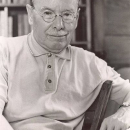
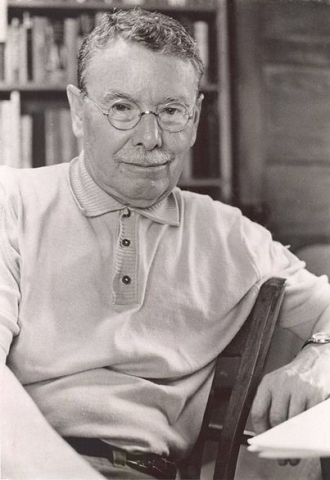
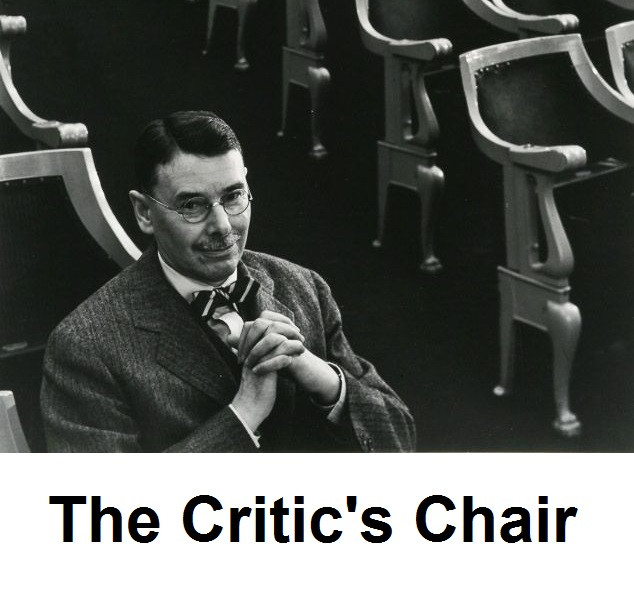
 Amanda S. Stevenson
Amanda S. Stevenson 